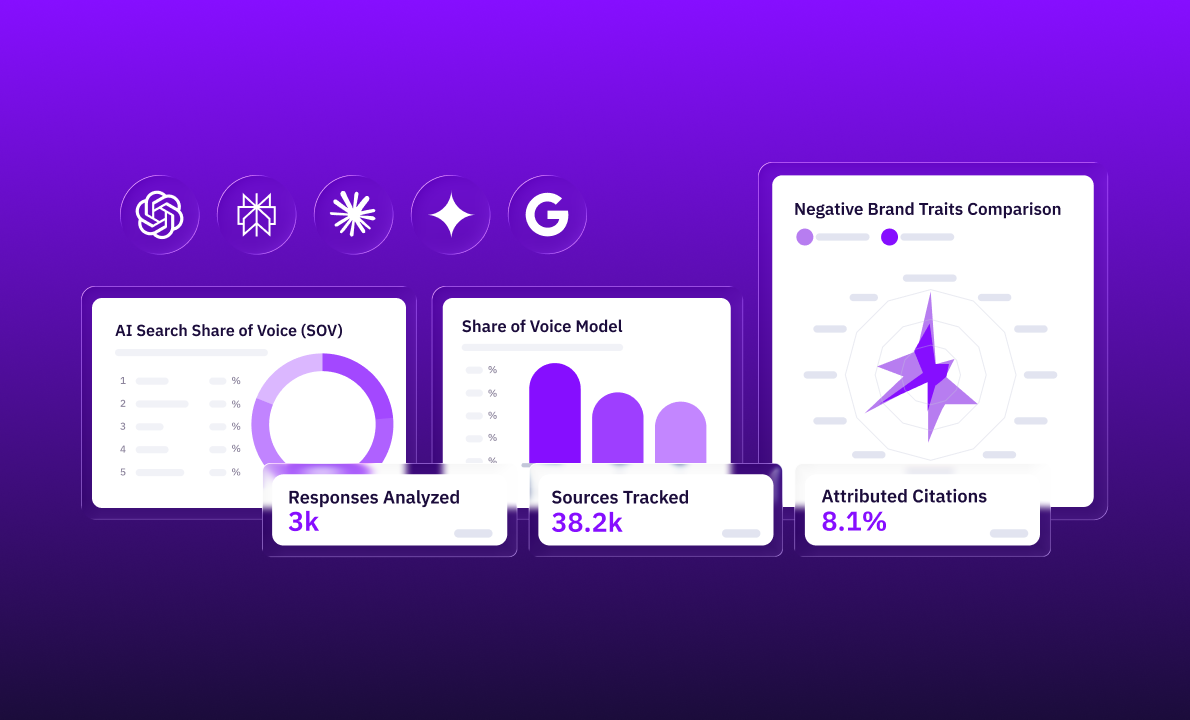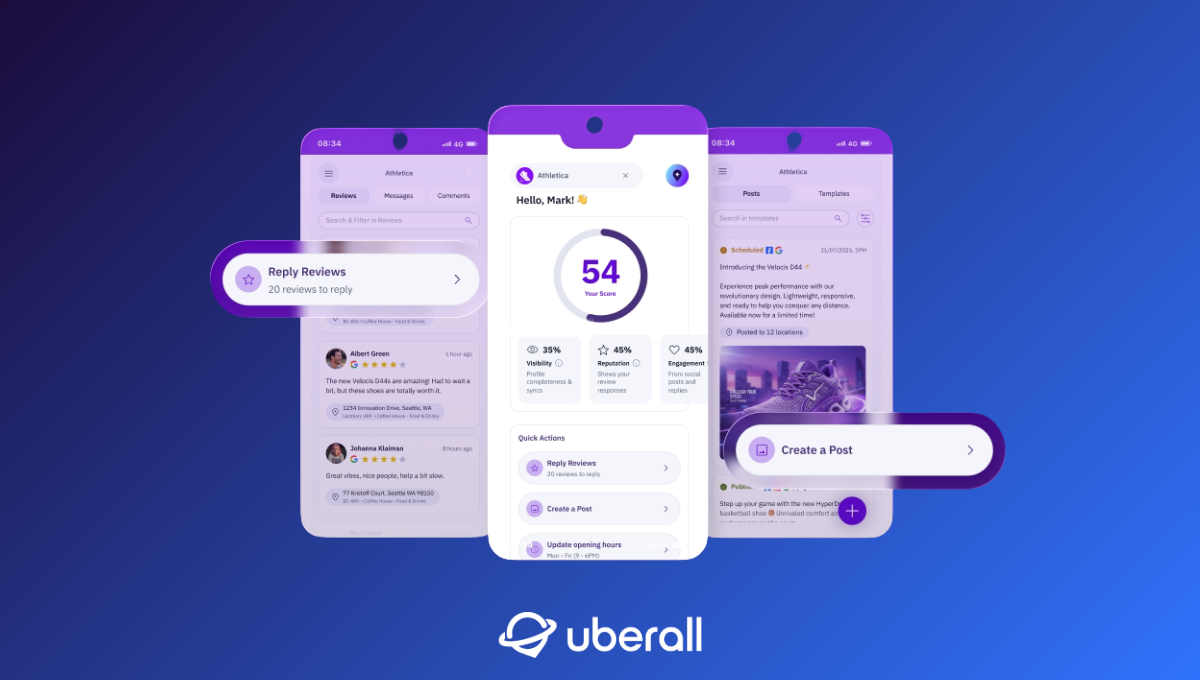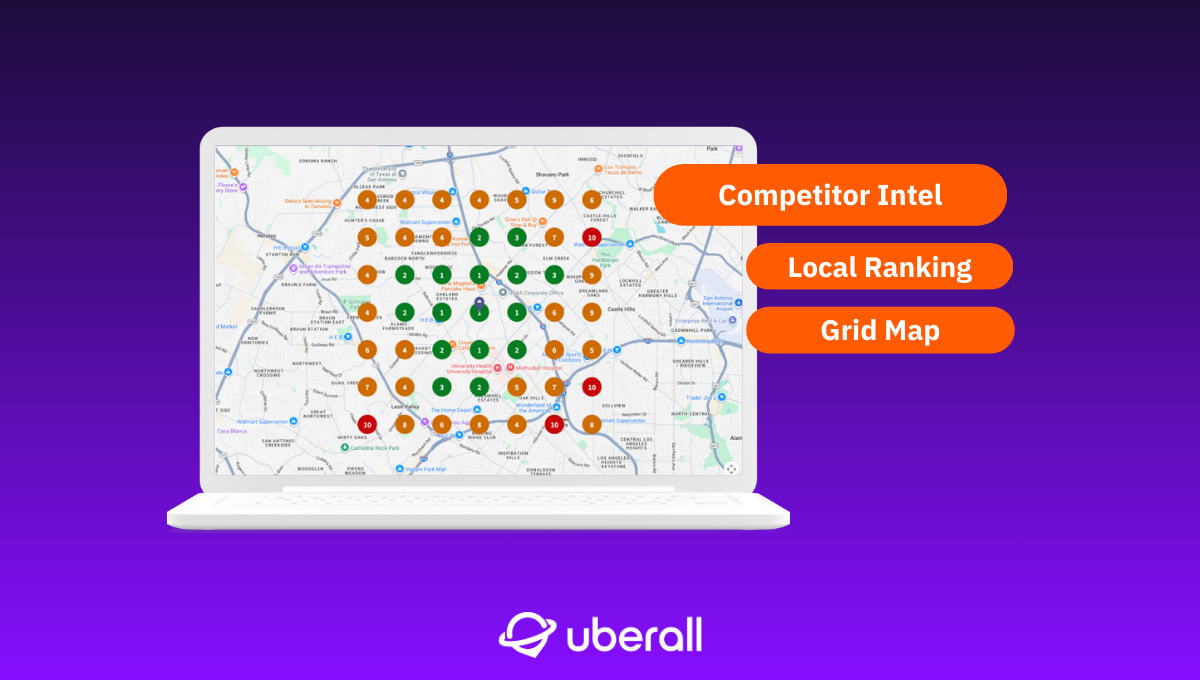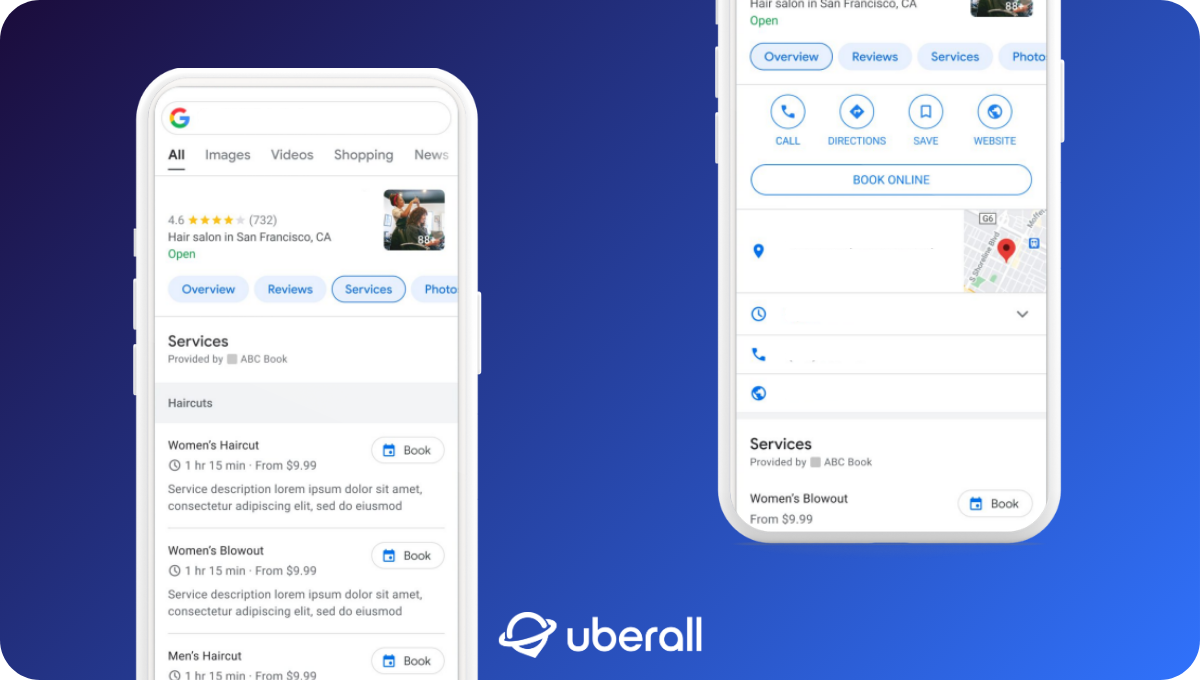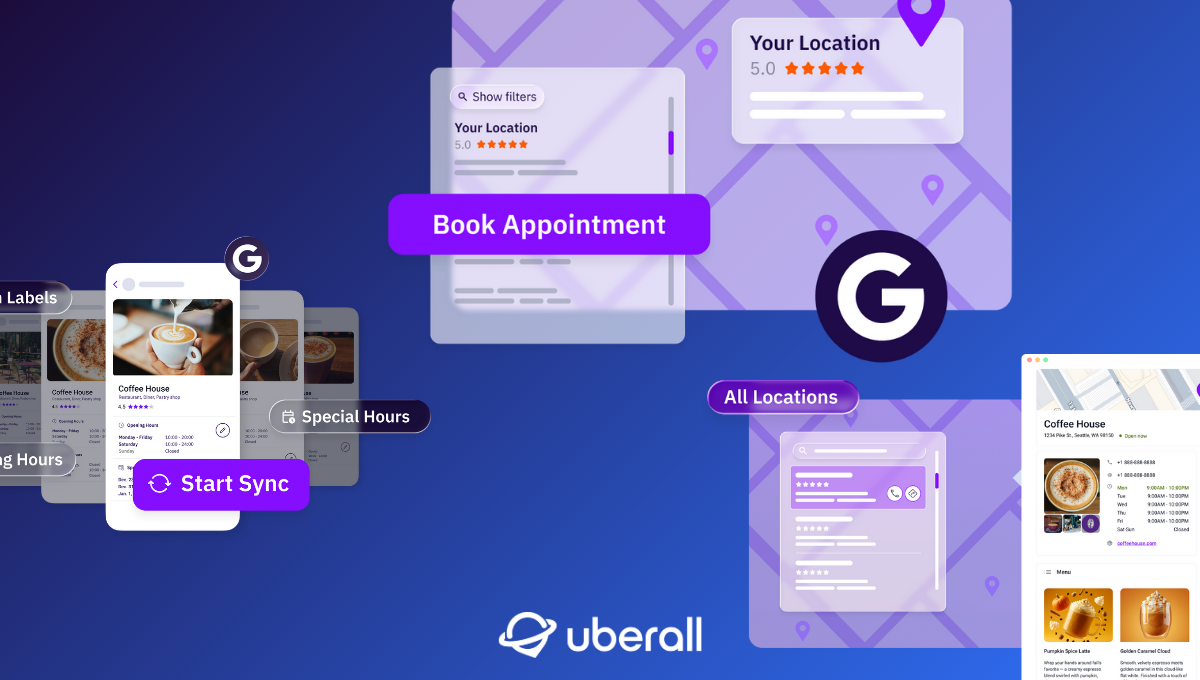
How To Find Keywords For Local SEO
Local SEO keywords make all the difference in digital marketing. We guide you through keyword research and integrations for noticeable results step by…
The power of location cannot be overstated—particularly when it comes to mastering search engine optimization (SEO). In fact, the rise of local search has necessitated a strategy that considers not just what potential customers are searching for, but where they are searching from.
This guide offers you a step-by-step approach to identifying the most effective local keywords and phrases, leveraging SEO to ensure your business thrives in the competitive search landscape. But let’s start small…
What Are Keywords?
Keywords are specific words or phrases that users enter into search engines when looking for information, products, or services online—and these keywords are crucial for your SEO because they help you optimize your content to match user queries.
- Short-Tail Keywords are brief, generic terms consisting of one or two words; like “car insurance”.
- Long-Tail Keywords are more specific phrases containing three or more words that target niche topics; like “affordable car insurance for young drivers”.
By strategically using keywords throughout their website, businesses can attract more targeted traffic and increase their chances of ranking higher in search engine rankings.
What Are Local Keywords?
Local keywords are search terms that include geographic modifiers, such as city names, neighborhoods, or regions, to target location-specific search intent. These keywords help businesses optimize their online presence for local SEO, enabling them to appear in search results within a specific geographic area.
For example, "Italian restaurant in New York City" or "dentist near me" are typical local keywords. In fact, egional dialects, cultural nuances, and local expressions can significantly affect how people search for services and products. But why do these local variations matter? And how can they impact your business's digital footprint in different regions?
Why Local SEO Matters
Local SEO holds immense importance for businesses of all sizes, particularly those with brick-and-mortar stores or service areas. And it should be a top priority because of:
- Increased Visibility: Local SEO helps businesses appear prominently in local search results, ensuring visibility to potential customers nearby.
- Targeted Audience Reach: By optimizing for local search queries, businesses can reach customers who are specifically looking for solutions within their vicinity, who are most willing to buy—leading to higher conversion rates.
- Competitive Edge: Leveraging local SEO tactics allows businesses to compete effectively against local competitors and stand out in their target market.
- Enhanced User Experience: Local SEO improves user experience by providing relevant, location-based information that matches search intent.
Now let’s move on from theory to practice!
Finding the Right Keywords for Local SEO
The foundation of any successful SEO strategy is effective keyword research. But keywords popular in one region might be non-existent in another. Let's consider an example comparing keyword usage between the US and the UK, focusing on "vacation" versus "holiday" searches.
In the US, English-speaking users often search for "vacation destinations" or "summer vacations" when planning leisure trips—because vacation is the commonly used term in American English to refer to time off from work or school spent traveling. In the UK, the term holiday is preferred over "vacation"—so users are more likely to search for phrases like "holiday destinations" or "summer holiday ideas."
How To Do Local Keyword Research
Identifying local keywords that genuinely resonate with your audience kicks off with comprehensive market research. You're not just looking for words; you're becoming an investigator into the cultural and linguistic habits of your locales of interest:
- Delve into demographics, interests, and behaviors that define the community. Pay attention to local news, forums, and social media to determine how locals describe the products or services they're seeking.
- Identify Local Search Terms by brainstorming common local search queries related to your business. Include location-specific keywords such as city names, neighborhoods, landmarks, and regional identifiers.
- Use Keyword Research Tools like Google Keyword Planner, SEMrush, Ahrefs, or Moz's Keyword Explorer to discover relevant keywords with local search volume.
- Explore Google Suggestions, both the autocomplete feature and related searches to identify popular local queries. How? Type in your primary keyword followed by keyword modifiers (e.g., "plumber near me," "best pizza in [city]").
- Analyze Competitor Keywords to identify terms and phrases that your competitors are targeting. Tools like SEMrush or SpyFu can provide insights into competitor keyword strategies.
- Consider Long-Tail Keywords that reflect specific customer needs or queries, such as "emergency dentist open on weekends in [city]" or "affordable yoga classes near [neighborhood]."
Once you compiled a list of relevant keywords, you should prioritize based on:
- relevance: select keywords that align closely with your offering.
- keyword search volume: select keywords that are frequently used in searches.
- keyword difficulty: select keywords that are (relatively) easy to rank for.
By focusing on a strategic mix of highly relevant, moderately competitive keywords with sufficient search volume, you can optimize your SEO efforts to drive meaningful traffic and achieve business objectives effectively.
What Is Keyword Search Volume?
Search volume refers to the number of times a particular keyword or phrase is searched for within a given period—typically on search engines like Google within a month. As such, it is an important metric in SEO as it indicates the level of demand or interest in specific topics or products.
- High search volume keywords are generally more competitive, but attract more traffic if ranked well.
- Low search volume keywords are generally less competitive, but attract fewer users.
Understanding search volume helps SEO professionals prioritize keyword targeting and optimize content to align with popular search trends and user interests. Tracking search volume trends over time can also provide insights into evolving user behavior and preferences.
What Is Search Intent?
Search intent refers to the purpose or goal behind a user's online search query, indicating what the user is seeking or hoping to accomplish with their search:
- Informational intent applies to users seeking knowledge or answers to questions. Such keywords often include terms like "how to," "tips for," or "what is."
- Navigational intent applies to users seeking a specific website. Keywords typically include brand names, business names, or phrases like "login," "contact us," or "hours of operation."
- Transactional intent applies to users who are ready to take a specific action. Keywords mostly include terms like "buy now," "order online," "book appointment," or "find [product/service] near me."
By aligning keywords with the users’ search intent, businesses can deliver more relevant content, thereby enhancing the overall user experience and increasing the likelihood of conversions.
Integrating Local SEO Keywords
Once you've identified your priority keywords, integrating them strategically across your website and online presence is crucial for local SEO success. Here's where and how to add keywords:
- Optimize Meta Tags: Include location-specific keywords in meta titles, meta descriptions, and header tags (H1, H2, H3) on key landing pages.
- Create Localized Content: Develop blog posts, articles, or landing pages that focus on local topics, events, or news related to your industry. Incorporate target keywords naturally within the content.
- Claim and Optimize GBPs: Optimize your Google Business Profile with accurate business information, including keywords in the business name, description, categories, and attributes.
- Optimize Local Citations: Ensure consistency of NAP data (Name, Address, Phone Number) across local directories, review sites, and social media profiles. Add location-based keywords to business listings.
- Generate Local Reviews: Encourage satisfied customers to leave positive reviews mentioning specific services or products along with location keywords. Reviews can influence local search rankings and credibility.
- Implement Structured Data Markup: Use schema markups to highlight important business information, such as address, opening hours, and reviews, for better visibility in local search results.
- Create Location Pages: If your business serves multiple locations, create dedicated location landing pages optimized with relevant keywords and unique content for each area.
Start implementing these strategies today, and you can expect to see noticeable improvements and success in your SEO efforts soon!
SEO Best Practice: Ulla Popken and Brose
Popken Fashion Group puts a strong focus on THE most important local search ranking factor: complete Google Business Profiles (GBPs). In addition to providing reliable data and appealing media assets, the team added keywords such as "plus-size" (product) and “Bremen” (city) to the titles, improving their online ranking.
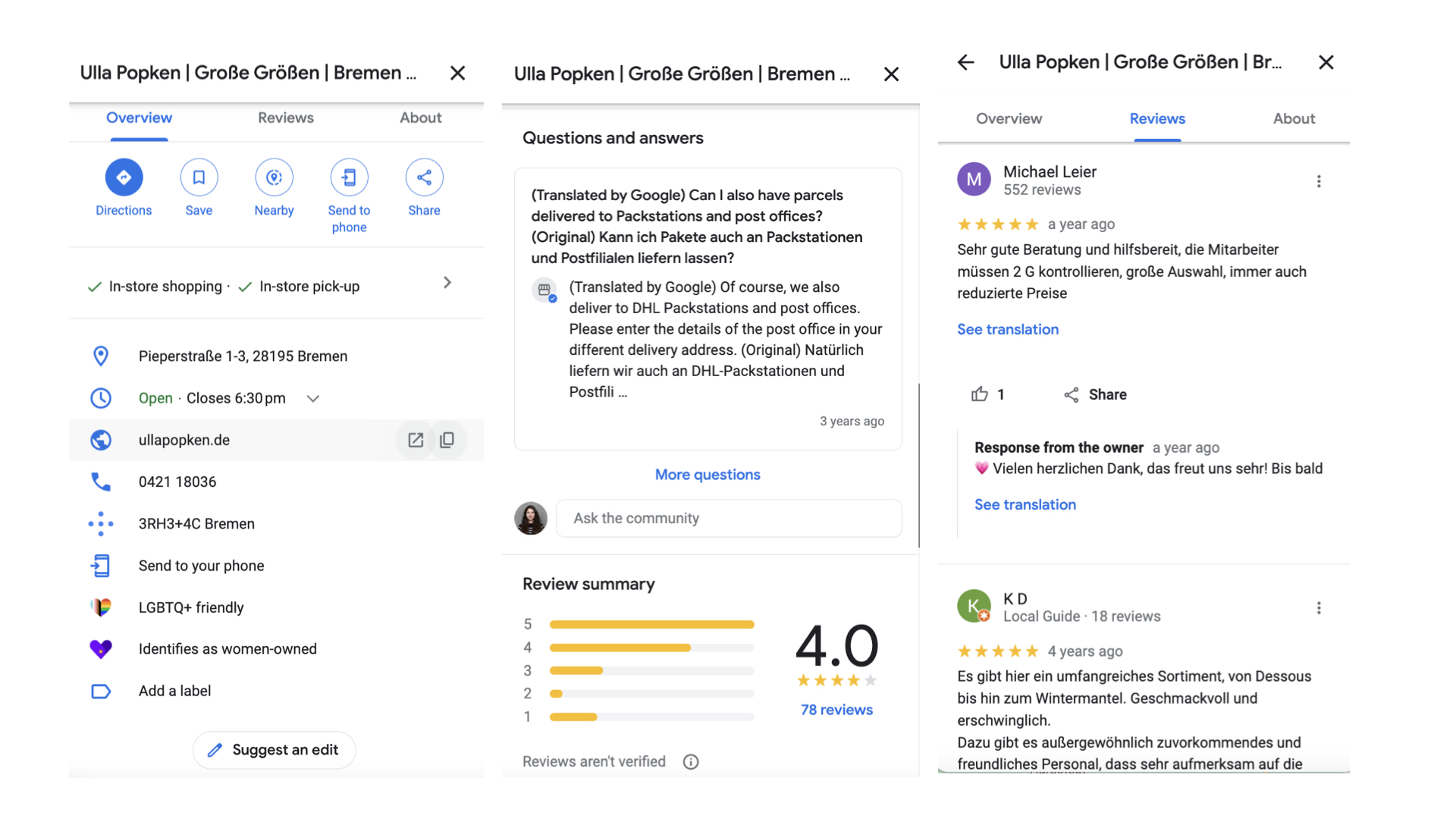
Brose added keywords like “vehicle components” (product) and “Coburg” (city) to their GBP to enhance their visibility in local search results and increase the likelihood of appearing in relevant searches for their products or services within specific geographic areas.
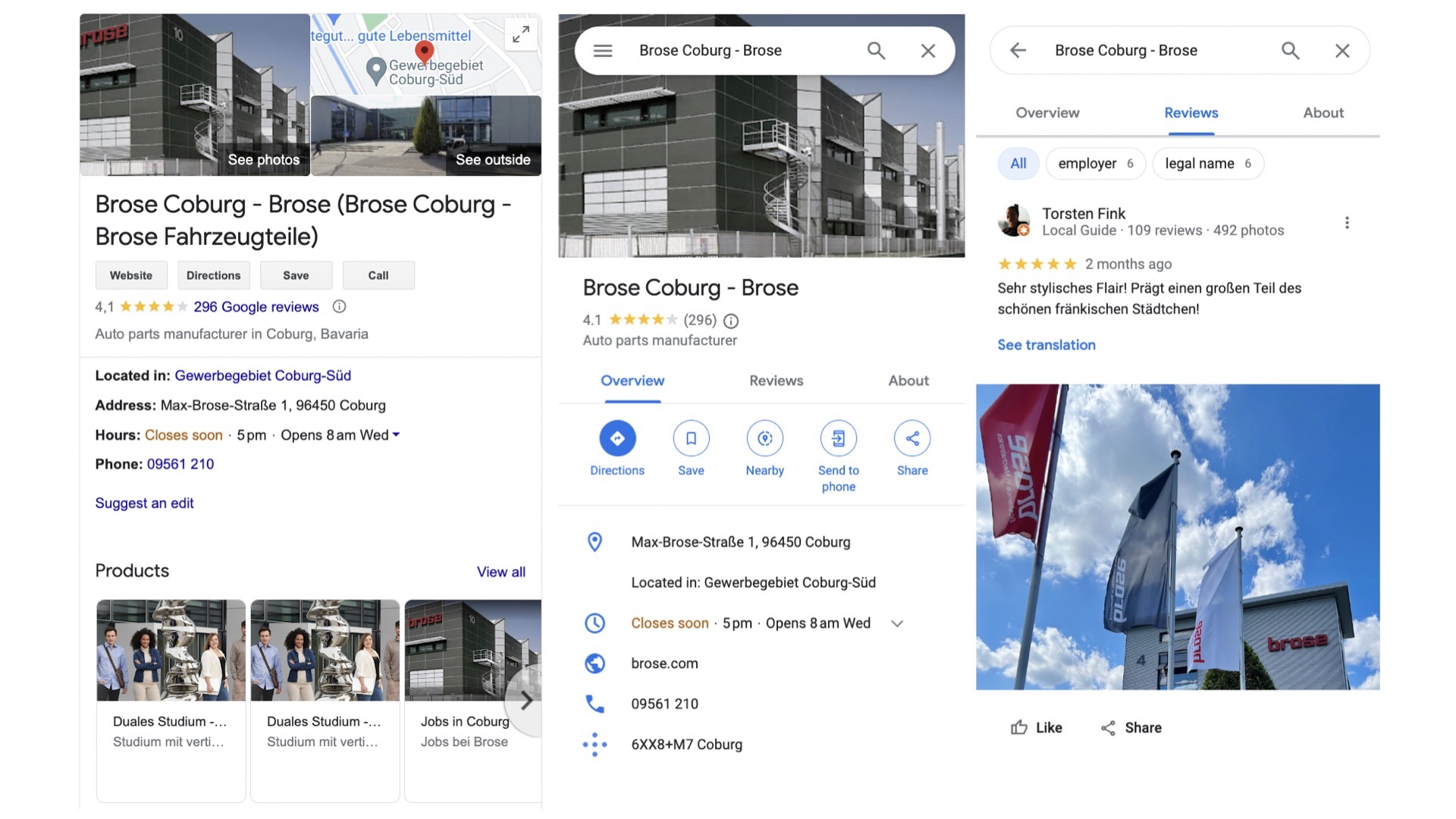
SEO Worst Practice: Common Mistakes to Avoid
We hate to say this but…focusing on the wrong aspects can have as much of an impact as focusing on the right ones, albeit negatively. Common mistakes related to keywords in SEO often stem from misunderstanding or misapplication of keyword strategies.
One prevalent mistake is keyword stuffing, where websites excessively repeat keywords in an attempt to manipulate search engine rankings, resulting in unnatural and poor-quality content.
Another mistake is neglecting long-tail keywords, focusing solely on generic short-tail terms, which overlooks valuable opportunities to target specific user intents.
Lastly, ignoring keyword optimization for different stages of the customer journey can hinder conversion efforts, as keywords should cater to informational, navigational, and transactional search intents.
Avoiding these mistakes requires a balanced approach to keyword usage, emphasizing relevance, user intent, and content quality to achieve effective SEO results. Moreover, partnering with a knowledgeable and experienced local SEO agency or consultant can provide valuable guidance—and we (Uberall) are more than happy to guide you!
Ready to Transform Your Business?
Connect with our partnership team to learn how Uberall can help you achieve similar results. Get a personalized consultation and discover the opportunities waiting for your business.
Resources





